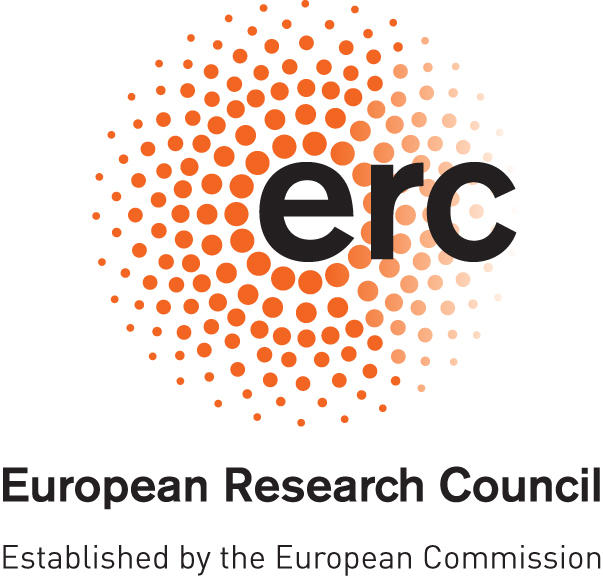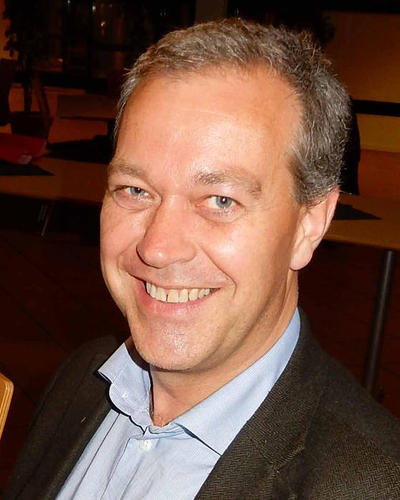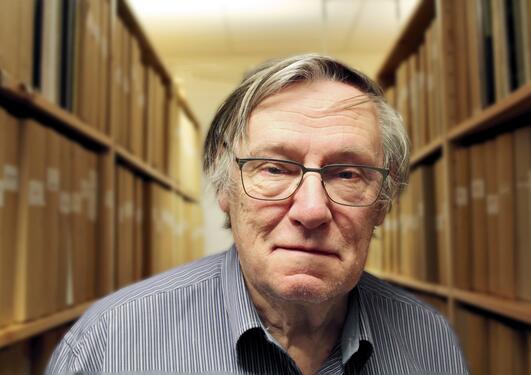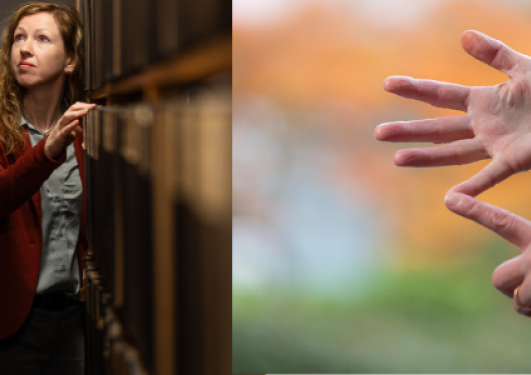Did our ancestors change the climate?
John Birks is Principal Investigator in the project HOPE, which aims to discover the impact prehistoric people had on the biosphere. The project is made possible by the prestigious ERC Advanced Grant.

Main content
Professor emeritus John Birks receives the ERC Advanced Grant for the project Humans On Planet Earth - Long-term impacts on biosphere dynamics (HOPE).
Birks, a Professor emeritus connected to the Department of Biology and Bjerknes Centre for Climate Research, is Principal Investigator of the project.
ERC Advanced Grants are designed to allow outstanding research leaders of any nationality and any age to pursue ground-breaking, high-risk projects in Europe. The scheme targets researchers who have already established themselves as top independent research leaders, and is one of the most prestigious research grants in Europe. The Advanced Grants are funding projects up to 2.5 million Euro.
Although he is a Professor Emeritus and retired, he has not retired from research.
“This project is ambitious and risky. But I like challenges,” says the professor.
Did our ancestors change the climate?
A critical question in Earth system science is what impact prehistoric people had on the Earth’s biosphere.
“We know that humans have changed the Earth in the last 8000 years, through agriculture, erosion, modifying water and nutrient budgets and so on. What we do not know, however, is whether early humans modified the major ecological processes,” Birks says.
The HOPE project aims to find out.
The answer may be discovered through testing hypotheses maintaining that human activity in the past 6000 years have impacted ecological processes.
Analyzing patterns in pollen data for the past 11,500 years from over 2000 sites across the globe will make the researchers able to discern changes in 25 ecosystem properties. These patterns will be compared statistically at sites within and between continents to test various hypotheses.
“Should we find out that these ecosystems were affected, it will give the world good reasons to be cautious of how we influence the future today,” Birks says.
A great feat
The Advanced Grant holds great meaning for both the scientific environment and the Department of biology as a whole, says Ørjan Totland, Head of Department. He is of the opinion that HOPE will create both valuable knowledge as well as scientific success.
“This project will reveal how humans may have affected ecology in ancient times. This knowledge is interesting and will provide us with an ecological view of history,” Totland says.
He is not surprised that Birks and his project receives the prestigious grant.
“John has been held in high esteem both nationally and internationally for many years, and has established the palaeoecology environment here at UiB. This is a great achievement.”
Totland says former Head of Department, Anders Goksøyr, deserves much of the credit, as he facilitated Birks’s application.
“I know John is thankful for that,” says Totland.
Interdisciplinary and global
The project will be interdisciplinary and apply pollen analysis, databases, multivariate analysis, ecology, new statistical methods, numerical simulations as well as statistical modelling. In addition, it will be a global project.
“We are building a strong group, and require international collaborations. Many of the researchers I have worked with before wish to be involved,” Birks explains.
An ambitious project
HOPE will be funded for five years, and will employ three postdoctoral fellows and one PhD candidate, as well as other partners.
“We would not be able to do this without the ERC grant. Now, we will bring together a team of outstanding scientists, both young and experienced” Birks says.
Though officially retired, Birks looks forward to the work that lies ahead.
“This is most likely my last project as a researcher. I have been involved in many projects, but this is the most ambitious one yet.”



